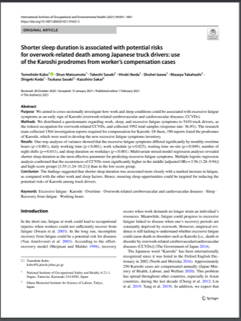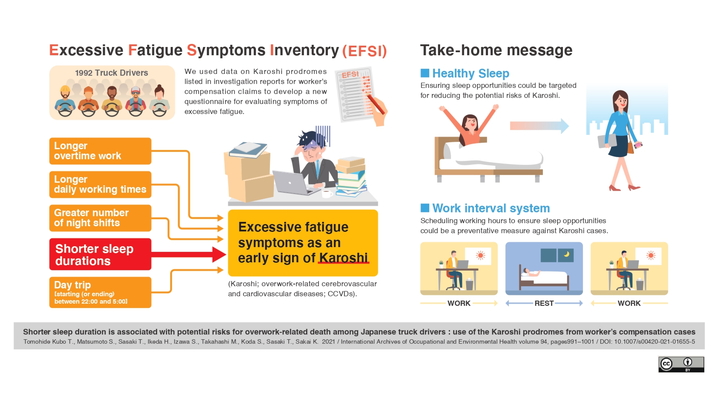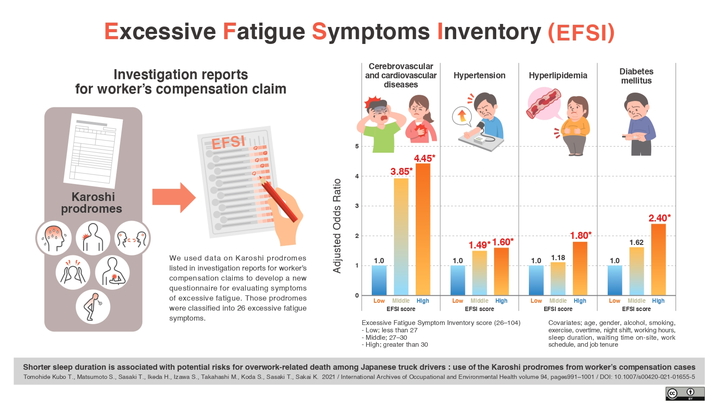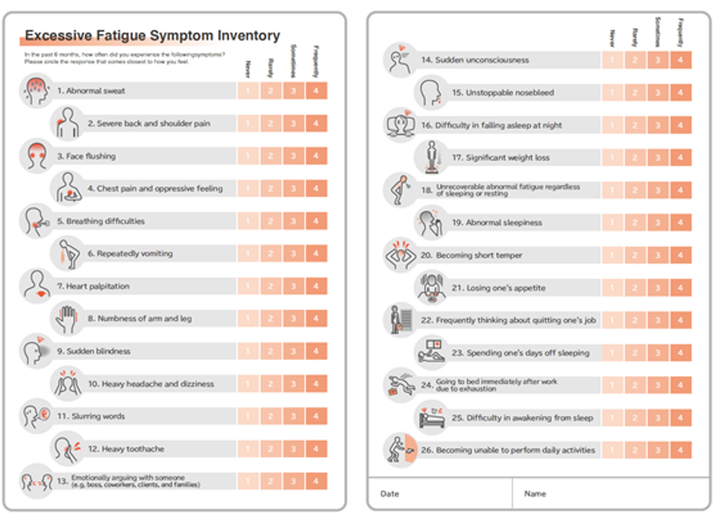Excessive Fatigue Symptom Inventory (EFSI)
National Institute of Occupational Safety and Health, Japan
Our research team investigated how factors such as work, and sleep conditions are associated with the risk of Karoshi (i.e., overwork-related death). Then, we collected 1,564 investigation reports required for compensation for Karoshi. Of them, 190 reports listed the prodromes of Karoshi, which were used to develop the Excessive Fatigue Symptoms Inventory (EFSI) to evaluate and prevent the potential risks of Karoshi.

EFSI has 26 excessive fatigue symptoms. Of them, 16 items were physical symptoms (i.e., the first 16 symptoms), while 10 items were behavioral symptoms (i.e., the last 10 symptoms). The respondents are required to rate how much they experienced each symptom in the past 6 months on a 4-point scale (1=never, 4=always). Basically, the total score is used to analyze the data. However, it is also available to separately analyze the data in terms of physical and behavioral symptoms.
The copyright is owned by JNIOSH. Please cite the following article (Kubo et al. 2021) when using the EFSI. This inventory is available without charge only for non-commercial research, individual use and educational purpose. If you would like to use this inventory for commercial purposes or for commercially sponsored research, please contact the following e-mail address.

Kubo T, Matsumoto S, Sasaki T, Ikeda H, Izawa S, Takahashi M, Koda S, Sasaki T, Sakai K. Shorter sleep duration is associated with potential risks for overwork-related death among Japanese truck drivers: use of the Karoshi prodromes from worker's compensation cases. Int Arch Occup Environ Health. 2021 Jul;94(5):991-1001. doi: 10.1007/s00420-021-01655-5.
https://link.springer.com/article/10.1007%2Fs00420-021-01655-5
Tomohide Kubo, Shun Matsumoto, Hiroki Ikeda
e-mail:fatigue@h.jniosh.johas.go.jp






